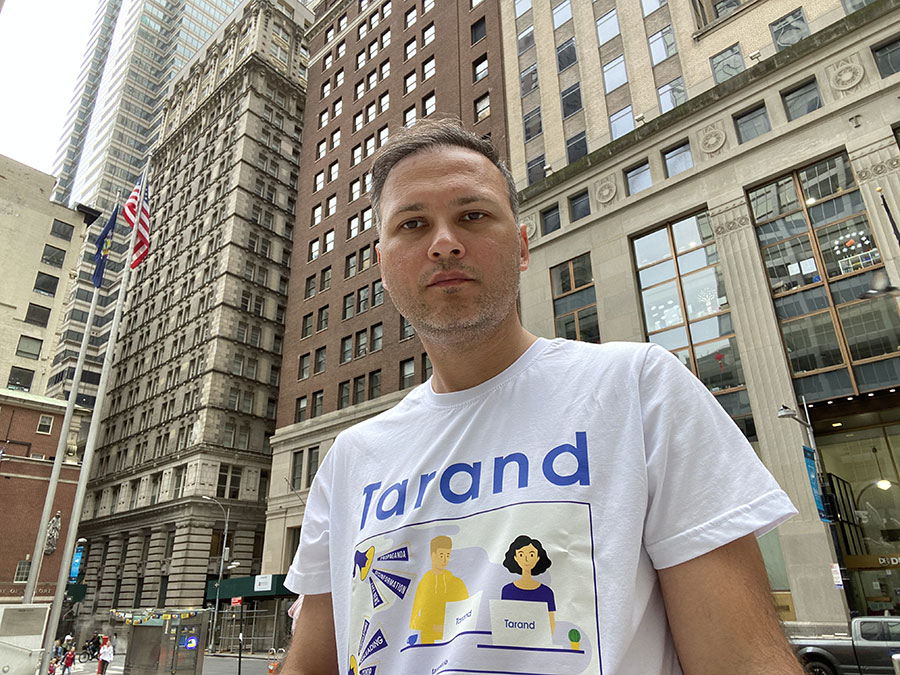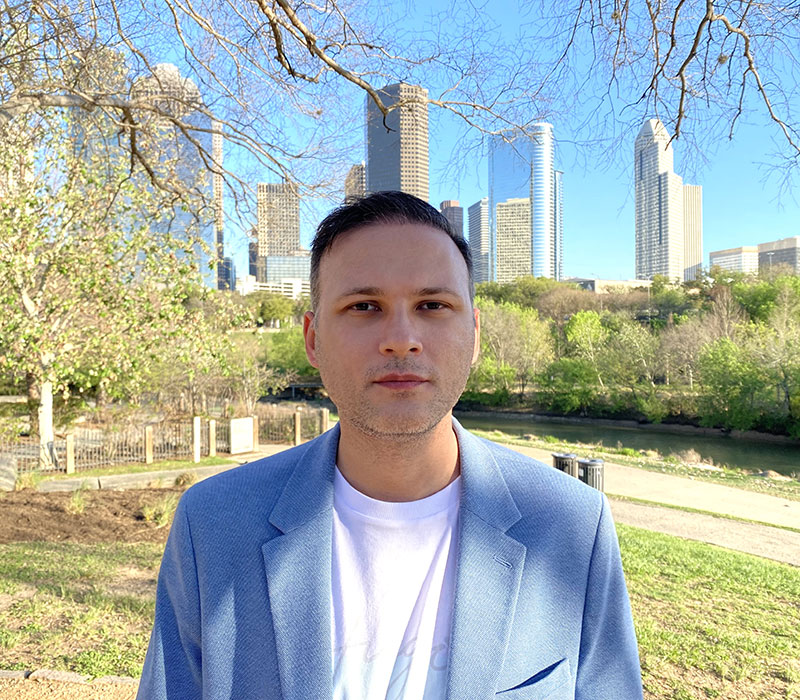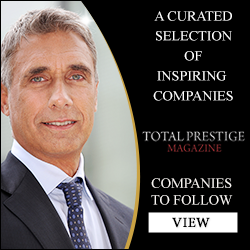There’s a lot more data out there than in the past. How does one navigate it all? Making sense of information in the modern age is often an art, as well as a science, and one that not all of us have mastered. Meet Ali Hajizade of Tarand, a warrior against disinformation and propaganda. How is this accomplished? Through extensive research and the development of educational materials over a ten-year period. Tarand teaches people how to identify, prevent, interpret, and go beyond disinformation providing what Ali Hajizade calls “human-focused” information security.
Needless to say, the spread of disinformation like a disease, has dire consequences for civil society. Leading to everything from civil unrest to economic turmoil, disinformation is, at its heart, born of chaos and nurtured in the darkness; Tarand brings light to these situations and removes the fog of poor data, and provides actionable clarity to clients. A major force in the polarization of societies across the globe, disinformation is as much a modern phenomenon as it is a dangerous one, and that makes it a new force for governments.
In this regard, Tarand acts as a partner with clients, working to prevent current and future outbreaks of disinformation, and malign information activity in addition to learning skills, strategies, and techniques for dealing with it in the here and now. Because disinformation can come from sources both large and small, there are different ways to deal with state-based in contrast to smaller actors. As the war in Ukraine easily demonstrates, the power of disinformation, and propaganda to propel peoples and nations into bloody extended conflicts is undeniable and Tarand’s Ali Hajizade wants to make this harder to do in the future. In closing our interview, Ali Hajizade shares some of his insights into data and information that he uses to navigate the modern world.
Ali, can you start by telling us about your company, Tarand, and how it empowers people not to get lost in the information jungle?
Then I need to say a few words about how I came up with the idea. I have dedicated more than ten years to studying, combating, and developing educational solutions to malicious information activity. My home country is the only country in the world that shares borders with both Iran and Russia, and these two countries are the largest generators of malicious information activity in the world. Of course, they have directed and are directing this activity at my home country as well. This allowed me to study and observe, as they say, “from the comfort of my home,” the activity, tactics, and strategy of two of the three most critical global generators of malicious information activity. By 2021, I was an expert in this field, being known and in demand far beyond my home country. I had the opportunity to get in touch and follow the activities of my colleagues in other countries. They discussed malicious information activity, wrote articles and reports, and pointed out how dangerous it is for countries and societies, but none offered a solution. I thought that my international team of experts and I could use our experience and try to come up with a solution. Thus came the idea of the startup, and the initial working title of the project was “Active Measures Research Group,” but then I thought that we needed something more succinct. In January 2022, our startup was registered in the USA, and I decided to call the project “Tarand,” after an ancient mythical animal. According to northern European mythology, Tarand had horns and fur, and the fur had the ability to change its color depending on the time of day and landscape, which made this animal very difficult to detect and catch. Likewise, disinformation and manipulation in the modern world have the ability to quickly adapt to the information landscape and are usually difficult to detect and tackle.
Tarand became the industry’s first solution on human-focused information security. We teach people to understand what malicious information activity is and how to recognize, classify and take measures to stop or prevent such activity. Through education and raising awareness, we try to boost the immunity of societies, countries, and individuals. In addition, our solutions are beneficial for military personnel, as they are usually the major and top priority targets for psychological operations and other types of information attacks.
What are the consequences if no measures are taken to prevent the spread of disinformation on the Internet?
I would like to stress that although the Internet is the main conductor of disinformation in the world, it spreads not only on the Internet but through all existing means of communication, as well as verbally. Most of the time, there are quite specific people and organizations behind disinformation, and if they do it, then they have goals and plans. These goals typically include creating confusion, tension, chaos, or extreme polarization in the countries targeted by this activity. Often “disinformation” is only one component of a much larger and multifaceted information operation with long-term goals. Unfortunately, the media often focuses on what is easy to comprehend and retell; as a result, the information that the public gets is just the tip of the iceberg. What might such activity result in? Unrest, unconstitutional change of power, economic problems, civil war, and polarization of society that will last for years, if not decades. For example, in 2017, the actions of a large British PR firm in South Africa almost brought this country to the brink of civil war, while Iran’s information activity in Iraq contributed to an even greater division within the country along religious lines, which in turn sparked bloody clashes. Russian information activity in Central Asia led to the division of societies in some countries of the region, and in some small countries on the Balkan Peninsula, Russian information activity, coupled with active measures, led to tensions and coup attempts. Much has been written and said about Russian information activity in the United States before and after 2016. Russia has also contributed to the polarization of the American society, and it didn’t start yesterday. It’s a long game.
Tarand is an American-based firm. Was there a specific reason you founded the group in the United States due to the amount of information and disinformation that occurs there daily, or was it merely a coincidence?
No, it wasn’t a coincidence. There are several reasons for that. Firstly, the US is the number one target for malicious actors (mainly Russia, China, and Iran), and the US is under constant information attacks from malicious actors. Therefore, I believe that there will be more demand for our solutions in the United States.
Secondly, the USA is a country open to new ideas and innovations, unlike most other countries in the world. There are many bright people here, professionals who understand what we offer and see all the risks and opportunities. Therefore, when I made decisions, I proceeded from these considerations.
Are there people, organizations, or countries currently trying to destabilize groups and infrastructures through the spread of disinformation? If so, how can Tarand prevent this from occurring?
Of course, there are, always have been, and always will be; it should be taken as a given. Moreover, the advent and spread of the Internet, the emergence of social networks, rise of artificial intelligence and products created by it have much facilitated and cheapened the job for malicious actors. There are states that I mentioned that permanently conduct operations to disinform and spread false narratives, and there are also non-state actors who, taking advantage of the freedoms provided by the American political system, act as proxies for malicious actors on American soil.
Regarding how Tarand can prevent this, there is no silver bullet here, but disinformation is like an infection. You can be vaccinated, or you can have strong immunity, which does not mean that you will not catch the disease, but you will endure it more easily and with fewer complications. Tarand, through its unique educational programs, tries to create and boost immunity. Most people, including those in risk groups, cannot understand what happens and how malicious actors act. Often even journalists and politicians do not know the difference between misinformation and disinformation. It is not because they are silly or uneducated but because there are no solutions available to fill the voids and because malicious actors professionally disguise their activities and products. In this regard, Tarand serves as a beacon in the dark sea of disinformation, propaganda, manipulation, etc. We teach people to recognize and classify malicious information activity and understand the motives of malicious actors, their goals, and implementation methods. In addition, of course, we teach how to protect yourself or your organization and which preventive measures can be taken.
Ali, you were born and raised in Azerbaijan. How did your upbringing and education at the Azerbaijan State Art Academy influence your creation of Tarand?
I have a bachelor’s degree in Art History. At first glance, my education has nothing to do with human-focused information security, but the history of art, in particular the art of antiquity, the Renaissance, the Middle East, ancient China, and India, teaches you abstract and extraordinary thinking, looking from the side, notice things that others don’t at first glance, decipher small details, hints, which in turn obscure deeper meanings and messages. It helped me in my career as a Public Relations Specialist, as my PR firm in my home country has been on the market for over ten years and is one of the largest in the country. It also helped me with Tarand because Tarand is not just another food delivery or lawn mowing startup. It is a complex, intellectually intensive niche product requiring the highest engagement level and professional expertise. I say this without detracting from the merits of my colleagues who have created excellent food delivery startups, etc.
You previously stated that information is the new weapon of the modern era. Can you explain what you mean by this statement and how it is being used to affect lives?
Yes, I said that, and I was not the only one. Information could be weaponized in ancient times, too; let’s not forget Sun Tzu and his works on military art. He attached great importance to the information and how to use it to gain tactical and strategic superiority. How does it affect our lives? In the most direct way. The daughter of the late Boris Nemtsov, Zhanna Nemtsova, once said, “Russian propaganda kills. It kills not only reason and common sense but literally kills”. I think it is difficult to find a more precise and succinct definition for disinformation and propaganda. Let me give you an example. Russian propaganda actively promoted the narrative, according to which Ukrainians, together with American specialists, infected birds and sent them to Russian territory. As a result of this propaganda, residents of some Russian cities began to poison pigeons, fearing that they were carriers of viruses.
Under the influence of disinformation, people may begin to think that they are superior to others, and this may eventually lead to a bloody conflict. I advise those who are interested to read the story of the Thousand Hills radio station and its role in the Rwandan genocide. Propaganda, mass disinformation, and manipulation of public consciousness actually led to the Second World War and the Holocaust. In mid-February, I visited the Holocaust Memorial Museum in Washington D.C., and if it is appropriate to say here, I got immersed into the world of horror that the Nazis and their propaganda created in Europe. The Nazis brainwashed German society into believing that they were exceptional and had the right to decide who should and who should not live. At the root of all this were hate propaganda and conspiracy theories that turned out to be powerful enough to dominate the public consciousness. And there are many such examples around the world. Weaponized information and weaponization of information can lead to unpredictable consequences. Therefore, it is essential to understand the power of weaponized information and timely start combating it in order to be able to stop it.
Where do you see information and the information wars going in the coming years? How are the Internet, social media, and the 24-hour news cycle going to help or hinder the world?
With consideration of the war in Ukraine and Russia’s fairly large capabilities in terms of information warfare, I believe that Ukraine and the whole of Eastern Europe will be subjected to robust information and ideological attacks for at least a few more years. It should also be noted that when it comes to information activity, Moscow operates globally; evidence of its information activity can be found in Africa, South America, and the Middle East.
In addition, there are several conflicts in the Middle East with varying degrees of intensity; they will also continue to generate harmful information activity. China is building up its information warfare and information operations capabilities. I believe that we should expect an increase in the information confrontation between China and Taiwan, as well as between China and Japan. I also think that, unfortunately, the exchange of ideological and information blows between China and the United States is inevitable.
The three main malicious actors will certainly continue and maybe will escalate their information activity against the United States. Taking advantage of the domestic problems in the US, as in previous years, they will most likely try to aggravate the situation. It is worth noting that in most cases, malicious actors do not invent anything new. They take the narratives that could play the role of triggers in a particular country and weaponize and use them. As for social networks and news channels, intentionally or not, they very often become conduits and promoters of fake narratives. I think that specialists responsible for fact-checking in the media or social networks will have much work to do.
In addition to Tarand, you are also the creator of the Hajizade Group. Please, tell us about the Hajizade Group and the work it does.
I have been engaged in Public Relations since 2007. In 2012, I decided that the time had come for me to create my own company, and this is how the PR firm Hajizade Group came to existence. Prior to the pandemic, the group also included education and media companies. However, at the moment, we are focusing only on public relations and media production. Hajizade Group is the largest employer among PR firms in the country, which is mainly due to the fact that we act as a full-service PR firm and provide a full range of services to our clients. Also, almost since the day of its establishment, my company has been involved in various educational and social projects, from the first Instagram exhibition in the country to the education of girls.
How does your work with the Hajizade Group and Tarand differ?
Probably, primarily by these two companies operating in different time zones, which creates certain problems. Regarding Tarand, I work with an international team of people from different cultures and backgrounds. These companies work in totally different areas with totally different clients. But multitasking is not something new for me. I developed this skill while working at Hajizade Group because when running a PR firm that provides full service to clients, you have no choice; you have to multitask. Now I use this skill to manage companies and work with partners.
As someone that works in the information sector, how do you access information and interpret it?
There is such a thing as open-source intelligence, we actively use it, and I am amazed at how much sensitive data and information can be found in open sources if you know how and where to look for it. In addition, our team includes professionals with a military background, graduates of the best US military schools, psychologists, and analysts. They know how to tie up loose ends and put together a single picture from disparate parts. Sometimes a tiny detail, insignificant at first glance, can reveal a larger image, so we try, as much as possible, not to miss the details.

Ali, how is a day in your life?
It is a good question. Sometimes it is a routine day: answering emails, writing new emails, talking to clients and team members, lawyers, accountants, auditors, journalists, consultants, and so on. Of course, there are also meetings with totally different and mostly fascinating people. Sometimes I can have a hectic schedule when I regret that there are only 24 hours in a day, but I understand that everything has its own cycle. I’m afraid I have to disagree with the practice of some leaders who promote short sleep of like 4 or 5 hours a day, wake up at 4 am in the morning, exercise and then work, etc. I think that it is individual. If your body requires 7 or 9 hours of sleep, then you should give it; you don’t need to force your body just because some successful people say that is the way to do.
Trips certainly make a significant part of my activity. Sometimes they are fruitful, sometimes tiring. For example, last year, I returned to Washington from a trip to Chicago and flew to Lisbon a day later. I spent only 48 hours there attending for about an hour an event and realize that it is of no use for a startup like Tarand. This also happens. In general, I try to balance my day and find time for proper nutrition, family, friends, and leisure. Do I always manage to do it? No, but I try…
What is something most people don’t know about you?
I think this is a difficult question. For example, I know all the countries of the world and their capitals by heart. I don’t know what I need this for, but I just know it. I think not many people know about this side of me.
What makes you smile?
A lot of things. It can be just a word or picture, or someone’s good deed, sometimes, someone’s stupidity can make me laugh. I know that it is not nice to laugh at someone’s absurdity, but we are not perfect.
What scares you?
It is difficult for me to give a straight answer. Probably injustice towards someone. At the same time, we live in a world where the word “injustice” could probably be used to describe it.
If you had the power to change just one thing in the world, what would it be?
To be honest, I am a very practical person. I never thought about things that were not in my power, and I always focused on what was in my power, on what I could control. But if a miracle happens, and I have such power and opportunity, I would probably make sure that the children do not suffer from incurable diseases. I think it would bring more happiness and harmony to our world.
For more comprehensive information, please visit the official website at tarand.io











